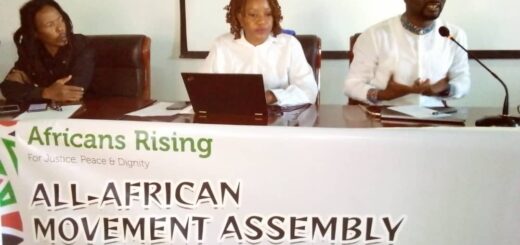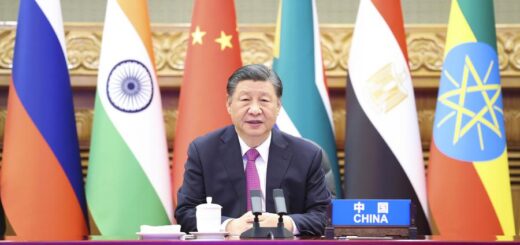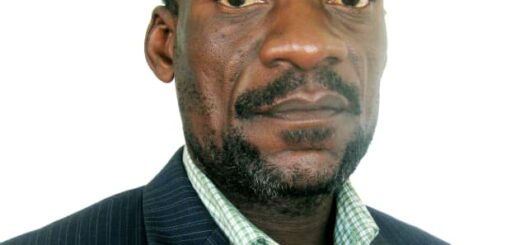‘TRALARD Project: a game changer for vulnerable communities’
Notice: Undefined index: catFilterList in /home/zambi/public_html/wp-content/plugins/wp-likes/api.php on line 243

Chinsali District Commissioner (DC), Samson Muchemwa
…As Chinsali DC appeals to the World Bank to consider other districts
By Rainbow Newspaper Zambia Limited (RNZL) Correspondent in Chinsali District, Muchinga Province
THE Transforming Landscapes for Resilience and Development (TRALARD) Project in Muchinga Province is a game-changer for vulnerable rural communities as it is improving their livelihoods, Chinsali District Commissioner (DC), Samson Muchemwa has said.
Mr. Muchemwa has however appealed to the Zambian Government and the World Bank to consider extending the TRALARD to Chinsali, Shiwangandu and Nakonde districts.
The northern region of Zambia is well endowed with forests, water bodies and wildlife. Thus subsistence agriculture, fishing, and exploitation of forest resources are the primary means of generating economic activity in the three provinces of Luapula, Northern and Muchinga, which make up this region.
The strong dependence of local people on these natural resources make the area particularly vulnerable to the impacts of climate change.
In response to this situation, the Zambian Government with support from the World Bank designed the TRALARD project to improve natural resource management and support vulnerable communities to better adapt to climatic risks that are prevalent to in this region.
The TRALARD initiated its activities in Muchinga in January 2020 and is being implemented in Chama, Isoka, Kanchibiya, Lavushimanda, Mafinga and Mpika districts.
The project has in three years supported 9,187 households with diversified livelihood activities, out of which 3,031 are female headed households.
To ensure that farm produce generated among some supported communities reaches the market, the project is connecting areas cut off during the rainy season by constructing resilient crossing points at selected sites in the six implementing districts in Muchinga Province.
Farmers are also being supported with irrigation facilities, namely, weirs and irrigation canals to improve productivity and storage facilities to support post-harvest management and marketing.
To ensure community livelihoods are secured, the project is also supporting business enterprises to provide inputs or offtake produce from supported communities.
Furthermore, the TRALARD project has supported 10 forest communities to designate 179,581 hectares of open forest as community forests.
The Government through the Forest Department has supported these communities to develop forest management plans. In addition, the Zambian Government through TRALARD is supporting forest communities implement activities in their respective forest management plans including forest based income generating activities such as beekeeping and mushroom preservation.
In an interview, Muchemwa described the project as a game changer which has so far improved employment opportunities and income of target rural dwellers in the implementation districts.
The DC said he had an opportunity of travelling to districts such as Isoka, Mpika and Kanchibiya where the TRALARD Projects were visibly making a positive impact in the lives of the people.
Muchemwa noted that the project has increased the ecosystem resilience and land productivity within vulnerable landscapes in the implementation districts through investments in community driven sub-projects and support of sustainable use of natural resources.
Meanwhile, the Chinsali DC has appealed to the World Bank through the Zambian Government to consider expanding its support in his district and others that were excluded from the TRALARD Project catchment areas because they were also grappling with the effects of climate change.
“TRALARD is a very good project which is improving vulnerable people’s livelihoods and it should extend its activities in our district. I have interacted with some people that are burning trees for charcoal business who say are ready to completely stop if they are empowered to sustain their livelihood.
In areas where people have been empowered by TRALARD, there is reduction of deforestation which is causing climate change. Climate change is not only affecting human beings but also animals. Without good rainfall, both human beings and animals are affected So, we want these projects to take place in our district, let the World Bank consider Chinsali and other districts that were excluded from benefiting,” Muchemwa said.
Muchemwa said deforestation and environmental degradation in Muchinga Province were largely attributed to wood extraction, agricultural expansion and fires.
Muchemwa called on residents in the district and province at large to ensure that they planted trees in order to protect the environment, human life and property.
The DC emphasized that trees must be preserved because they play a critical role in human life by providing the much-needed oxygen for human life and that even agriculture depended on the availability of a green environment which should be guarded jealously.





















